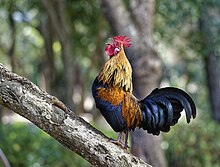User:Student5643/sandbox
 | This is a user sandbox of Student5643. You can use it for testing or practicing edits. This is not the sandbox where you should draft your assigned article for a dashboard.wikiedu.org course. To find the right sandbox for your assignment, visit your Dashboard course page and follow the Sandbox Draft link for your assigned article in the My Articles section. |

How to work in edit source[edit]
Headings[edit]
Equal signs mark headings: one is for title, two for headings, three for subheading 1, etc.
Bold and Italics[edit]
Bold words with three apostrophes. Italicize with two apostrophes.
Links to Other Pages[edit]
Hyperlink pages with two opening and closing brackets and the page name in between. You can also add the word you want to appear on the page and a pipe with the name of the page.
Virginity[edit]
Talk Page To-Do List:[edit]
- The lead does not summarize the article very well
- Many parts of the article need references
- A more detailed article on virginity and religion is probably desirable
- More on virginity in non-human animals, e.g. how some spiders can detect, and prefer virgin females for example
- Really glaringly obvious lack of feminist perspective here - the fact that the concept of virginity is socially constructed in order to place a value on women and that as a result, some women are now choosing not to acknowledge it at all as a concept
My Own To-Do List[edit]
- Effects of abstinence only Sex ed
- Virginity loss from a non-heterosexual point of view
- Finding sources
Sources[edit]
Averett, Paige, Amy Moore, and Lindsay Price. "Virginity Definitions And Meaning Among The LGBT Community." Journal Of Gay & Lesbian Social Services 26.3 (2014): 259-278. Academic Search Complete. Web. 29 Sept. 2016.
***"“coming out” is a more important rite of passage than virginity among these LGBT community members."
Berger, David G., and Morton G. Wenger. "The Ideology of Virginity." Journal of Marriage and Family 35.4 (1973): 666-76. Web.
***PAGE 667
Courtney, Andrea L. "Addressing The Horror Stories: How The Convention Against Torture Offers A Promising Answer To U.S. Asylum Seekers Fleeing Female Genital Mutilation." Georgetown Journal Of Gender & The Law 1.1 (2000): 887. Academic Search Complete. Web. 29 Sept. 2016.
Dunn, Jennifer, and Tennley Vik. "Virginity For Sale: A Foucauldian Moment In The History Of Sexuality." Sexuality & Culture 18.3 (2014): 487-504.Academic Search Complete. Web. 29 Sept. 2016.
Potera, Carol. "Comprehensive Sex Education Reduces Teen Pregnancies." American Journal Of Nursing 108.7 (2008): 18. Academic Search Complete. Web. 27 Sept. 2016.
Hess, Amie. Social Forces 89.3 (2011): 1080-082. Web.
Schalet, Amy. "Subjectivity, Intimacy, And The Empowerment Paradigm Of Adolescent Sexuality: The Unexplored Room." Feminist Studies 35.1 (2009): 133-160. Academic Search Complete. Web. 5 Oct. 2016.
Stanger-Hall, Kathrin F., and David W. Hall. "Abstinence-Only Education And Teen Pregnancy Rates: Why We Need Comprehensive Sex Education In The U.S." Plos ONE 6.10 (2011): 1-11. Academic Search Complete. Web. 29 Sept. 2016.
Proof of Virginity[edit]
Female genital mutilation is part of a coming of age ceremony in some African and Indian cultures that seeks to guarantee a woman's virginity by sewing the vagina nearly shut or by removing the clitoris and clitoral hood. It seeks to "ensure fidelity by decreasing the female sexual appetite" (Courtney) but is dangerous to the woman's health. The procedure is performed without anesthesia, the tools are unsanitary and used on multiple women, it prevents women from urinating or menstruating regularly, and can cause complications during childbirth.
Abstinence only Sex Ed[edit]
"Public schools receiving federal sex education funds are prohibited from teaching about the benefits of condoms and contraception, and they are mandated to teach their students that sex outside of heterosexual marriage is wrong and likely to be damaging. The curricula that do meet federal standards often contain scientific inaccuracies, promulgate gender stereotypes, and stigmatize nonheterosexuality." (Schalet)
Virginity as a social construct[edit]
‘‘For good or ill we live in a culture that cares deeply about female virginity and we have a long history of punishing those who lose it under the ‘wrong’ circumstances and praising those who retain it until the ‘right’ ones are at hand’’ (Dunn)
Add to cultural value section[edit]
Though virginity has historically been correlated with purity and worth, feminist scholars today are arguing that it is actually a myth. Merriam-Webster defines myth as “a popular belief or tradition”[5] and Dictionary.com defines it as a tradition “without a determinable basis of fact or a natural explanation.”[6] No standard definition of virginity exists[7] and though many associate breaking the hymen with virginity loss, this is not a determinable basis of fact because the hymen can be broken by activities unrelated to sex.[8] Jessica Valenti, feminist writer and author of The Purity Myth, has been the leading voice in this argument. Supported by other feminist thinkers, such as Laura Carpenter and Hanne Blank, Valenti reasons that the concept of virginity, though damaging and dangerous to women, does not exist. She supports this claim by describing the many individual definitions of virginity loss and by explaining that valuing virginity has placed a woman’s morality “between her legs.”[9]
Oxford English Dictionary definition of myth[edit]
A widespread but untrue or erroneous story or belief; a widely held misconception; a misrepresentation of the truth. Also: something existing only in myth; a fictitious or imaginary person or thing.
